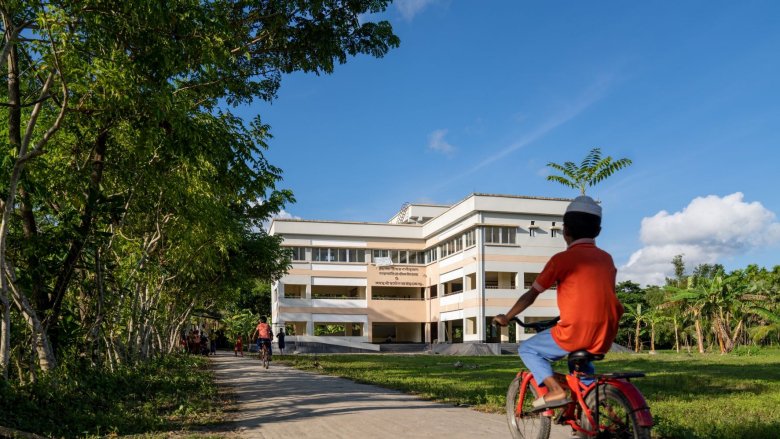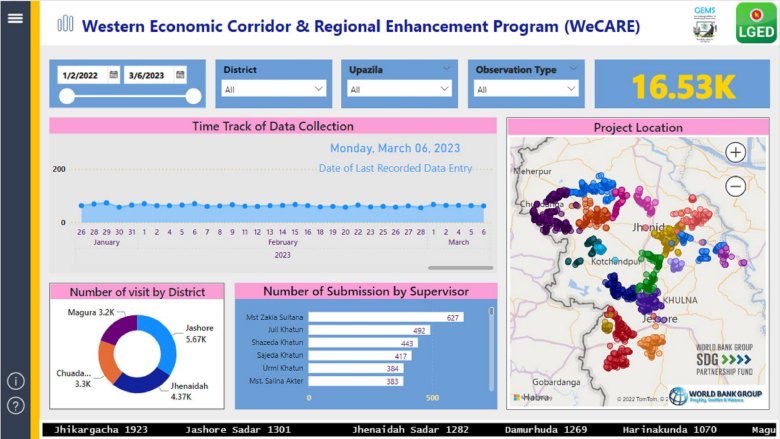Since 2000, Bangladesh has been one of the fastest growing economies in the world. To sustain its growth and development, timely implementation of development projects will be critical.
How can the government keep track of progress and assure that the intended impact is reaching the right beneficiaries, and on time?
Geospatial data, which provides various types of data specific to a location, is integral to making evidence-based decisions in development and public policy. Moreover, accurate and reliable data is critical to combating poverty. Data collection poses obstacles, however.
To address knowledge gaps in operations and challenges to collecting data, the Bangladesh government and the World Bank took a bold step by adapting an innovative approach to digitally monitor how projects are being implemented and impacting livelihoods across Bangladesh through the Geo-Enabling initiative for Monitoring and Supervision (GEMS) initiative.


